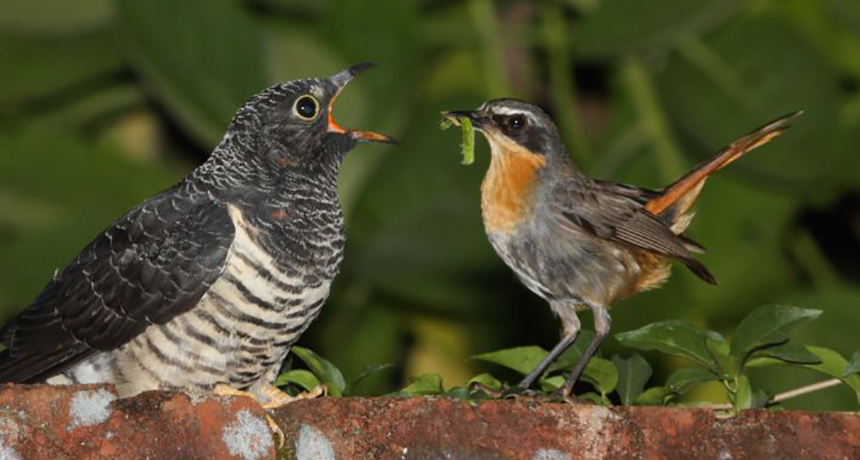Questions for ‘When parenting goes cuckoo’

Brood parasites leave their young with another animal who acts as a “foster parent.” Here, the foster parent is a cape robin-chat (right). It is feeding an enormous chick of another species, a red-chested cuckoo (left).
Alandmanson/Wikimedia Commons (CC BY-SA 4.0)